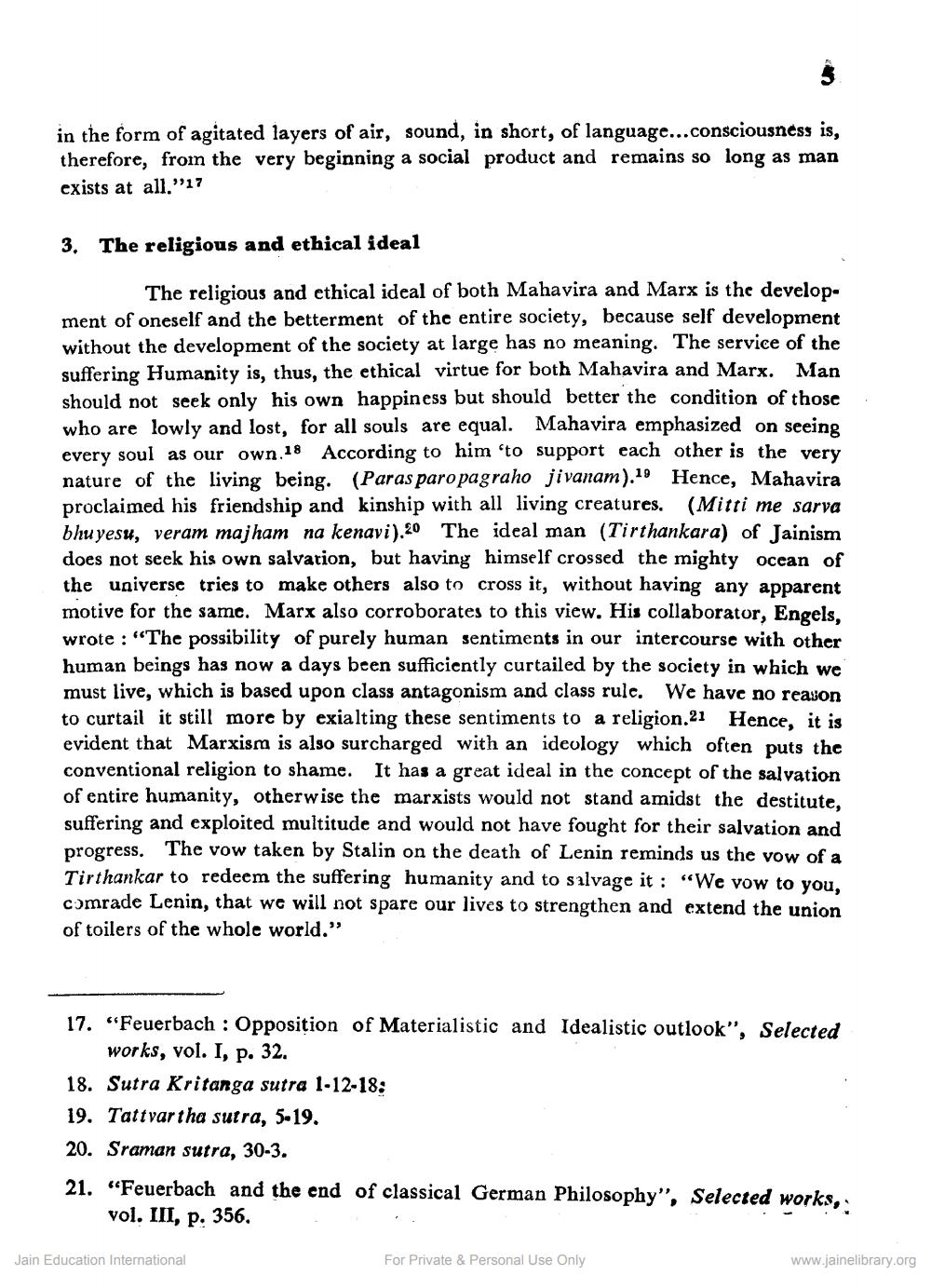________________
in the form of agitated layers of air, sound, in short, of language...consciousness is, therefore, from the very beginning a social product and remains so long as man exists at all.”'17
3. The religious and ethical ideal
The religious and ethical ideal of both Mahavira and Marx is the development of oneself and the betterment of the entire society, because self development without the development of the society at large has no meaning. The service of the suffering Humanity is, thus, the ethical virtue for both Mahavira and Marx. Man should not seek only his own happiness but should better the condition of those who are lowly and lost, for all souls are equal. Mahavira emphasized on seeing every soul as our own.18 According to him to support each other is the very nature of the living being. (Paras paro pagraho jivanam).19 Hence, Mahavira proclaimed his friendship and kinship with all living creatures. (Mitti me sarva bhu yesu, veram majham na kenavi).20 The ideal man (Tirthankara) of Jainism does not seek his own salvation, but having himself crossed the mighty ocean of the universe tries to make others also to cross it, without having any apparent motive for the same. Marx also corroborates to this view. His collaborator, Engels, wrote : "The possibility of purely human sentiments in our intercourse with other human beings has now a days been sufficiently curtailed by the society in which we must live, which is based upon class antagonism and class rule. We have no reason to curtail it still more by exialting these sentiments to a religion.21 Hence, it is evident that Marxism is also surcharged with an ideology which often puts the conventional religion to shame. It has a great ideal in the concept of the salvation of entire humanity, otherwise the marxists would not stand amidst the destitute, suffering and exploited multitude and would not have fought for their salvation and progress. The vow taken by Stalin on the death of Lenin reminds us the vow of a Tirthankar to redeem the suffering humanity and to salvage it : “We vow to you, comrade Lenin, that we will not spare our lives to strengthen and extend the union of toilers of the whole world."
17. "Feuerbach : Opposition of Materialistic and Idealistic outlook", Selected
works, vol. I, p. 32. 18. Sutra Kritanga sutra 1-12-18: 19. Tattvartha sutra, 5-19. 20. Sraman sutra, 30-3. 21. "Feuerbach and the end of classical German Philosophy", Selected works,
vol. III, p. 356.
Jain Education International
For Private & Personal Use Only
www.jainelibrary.org




